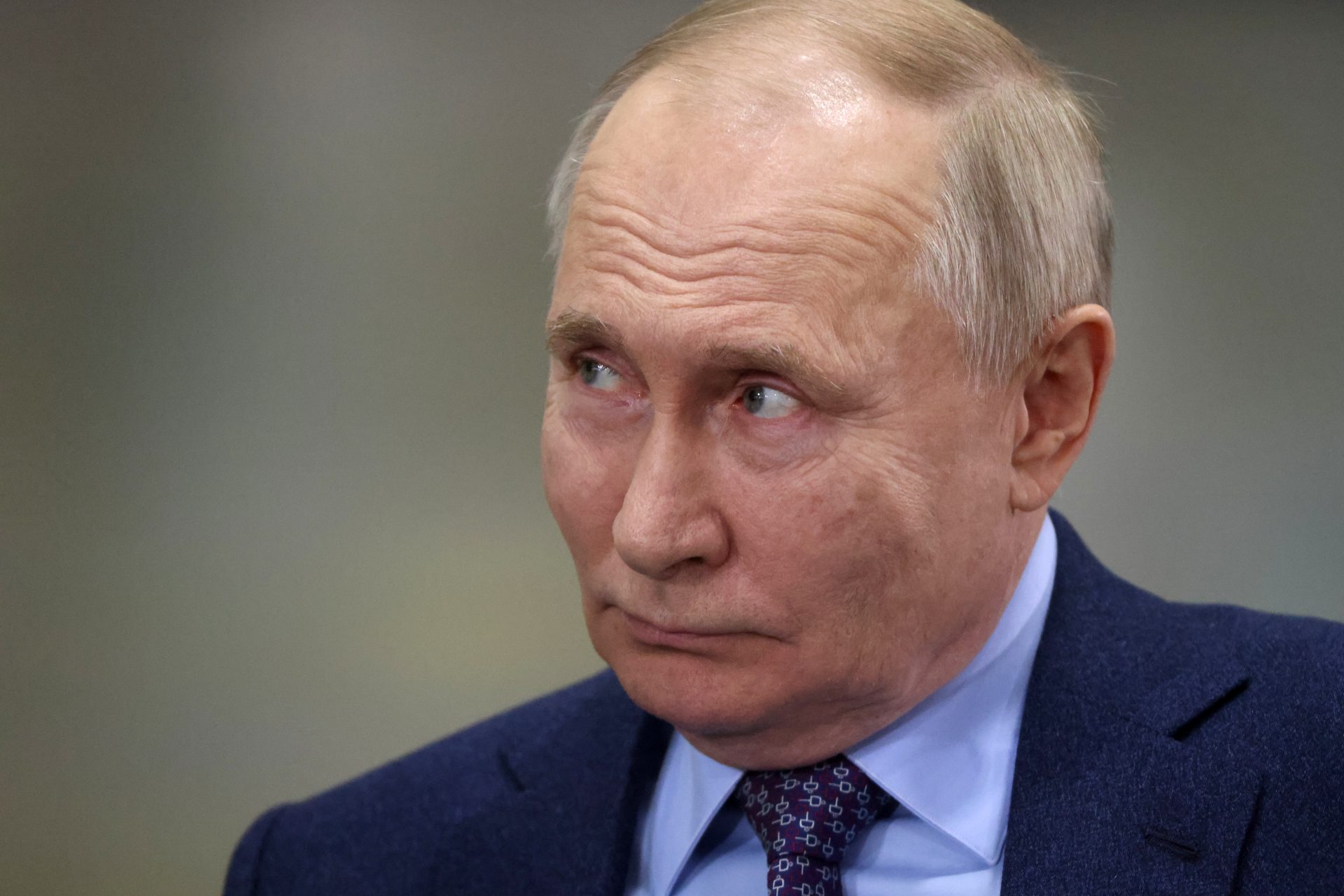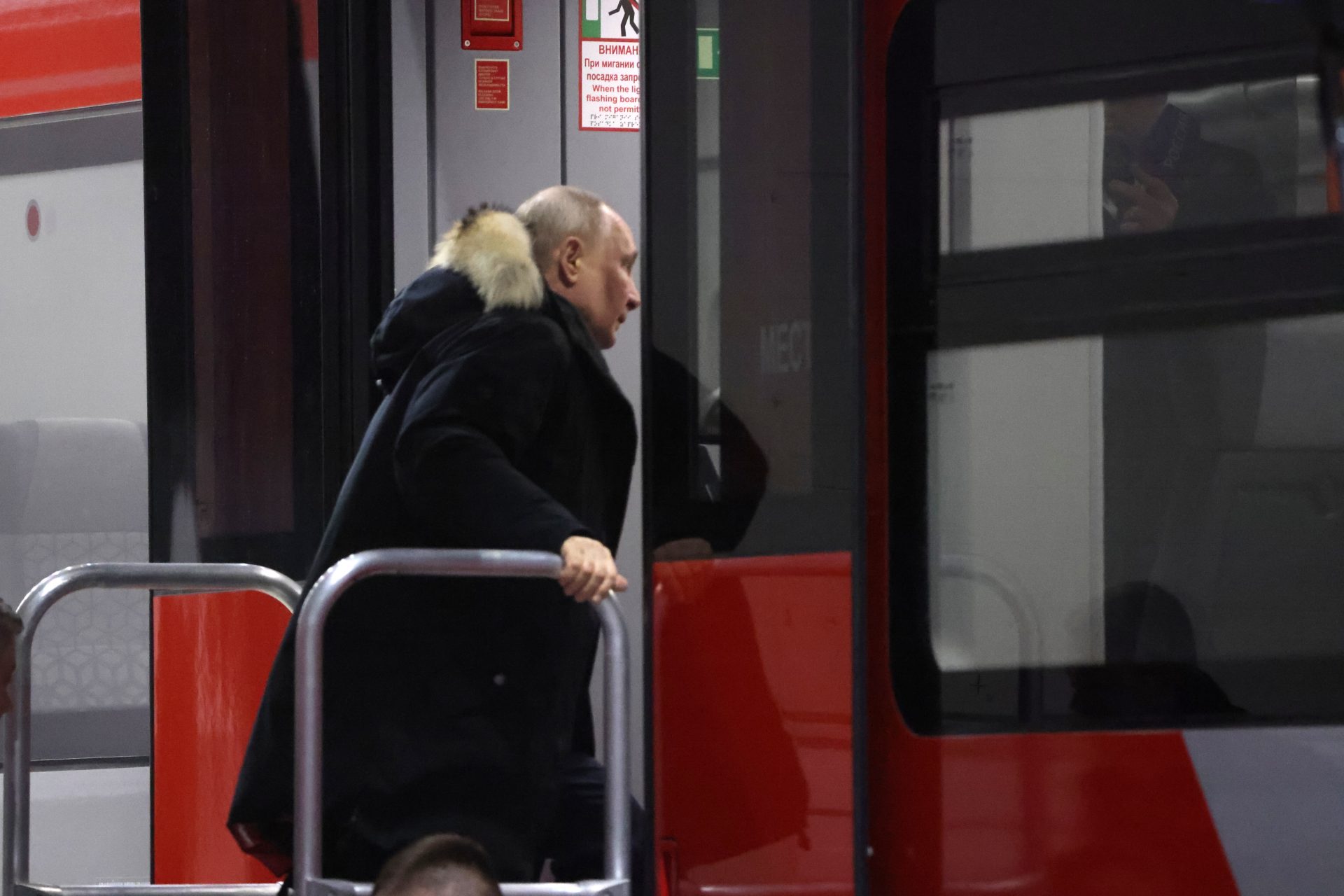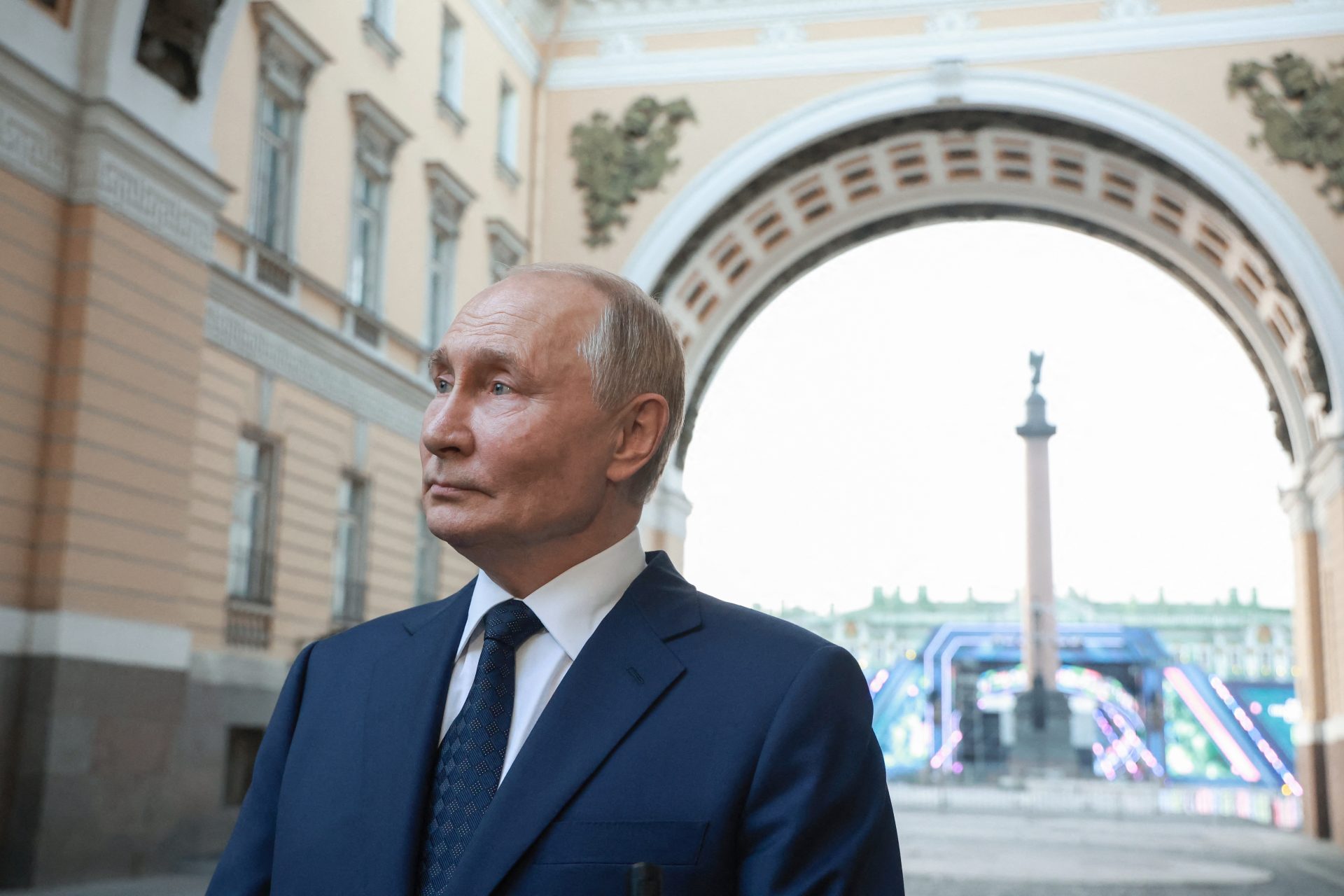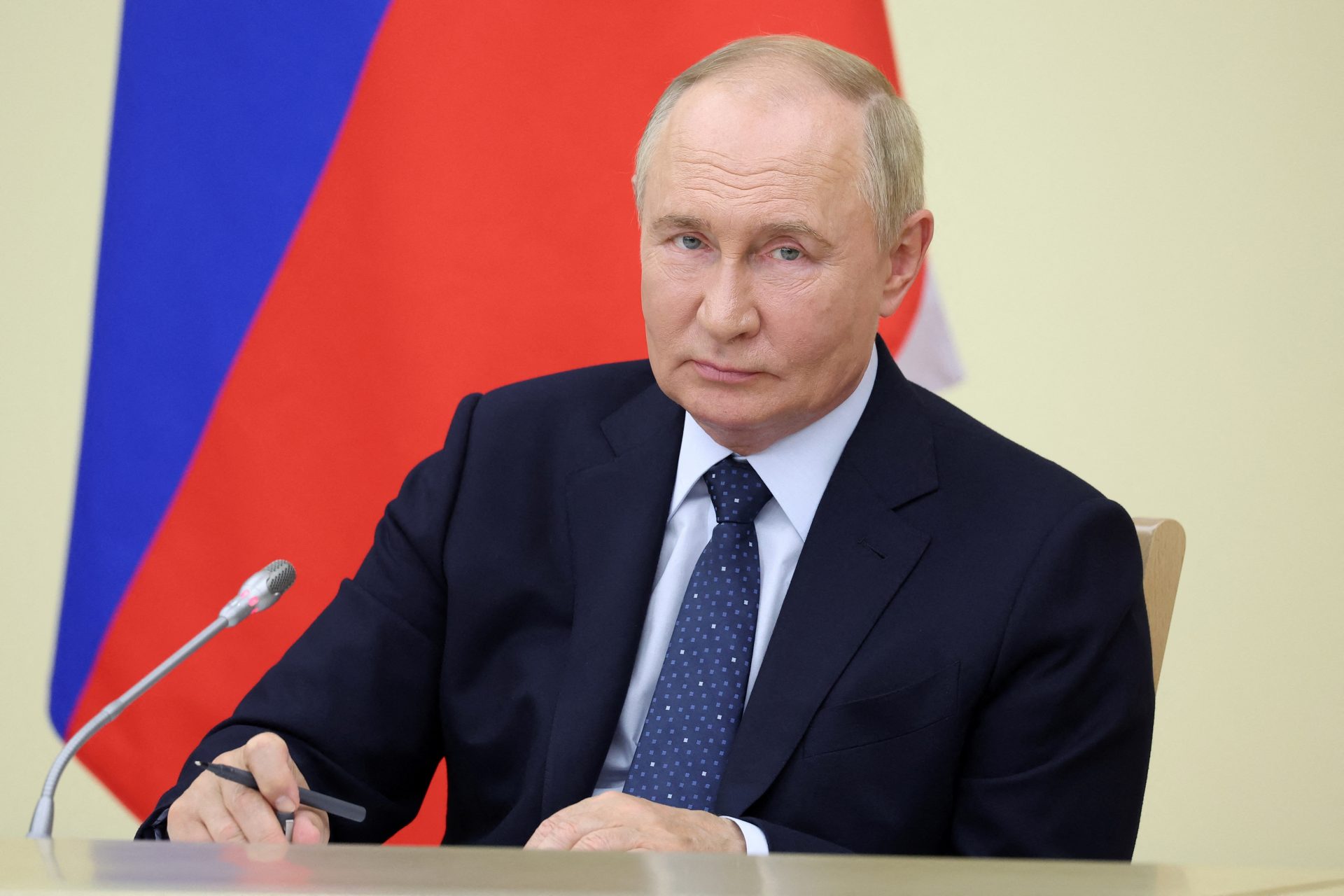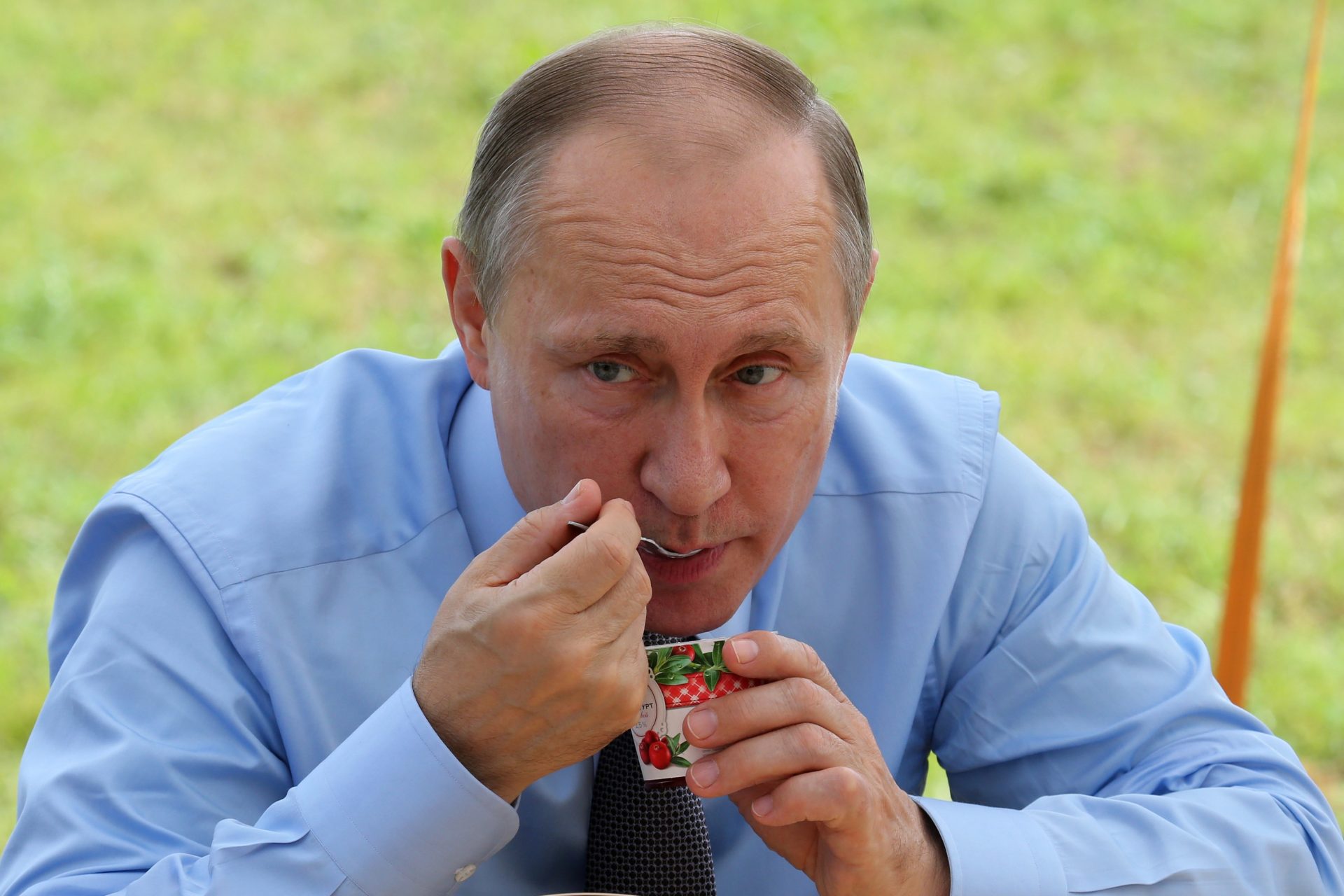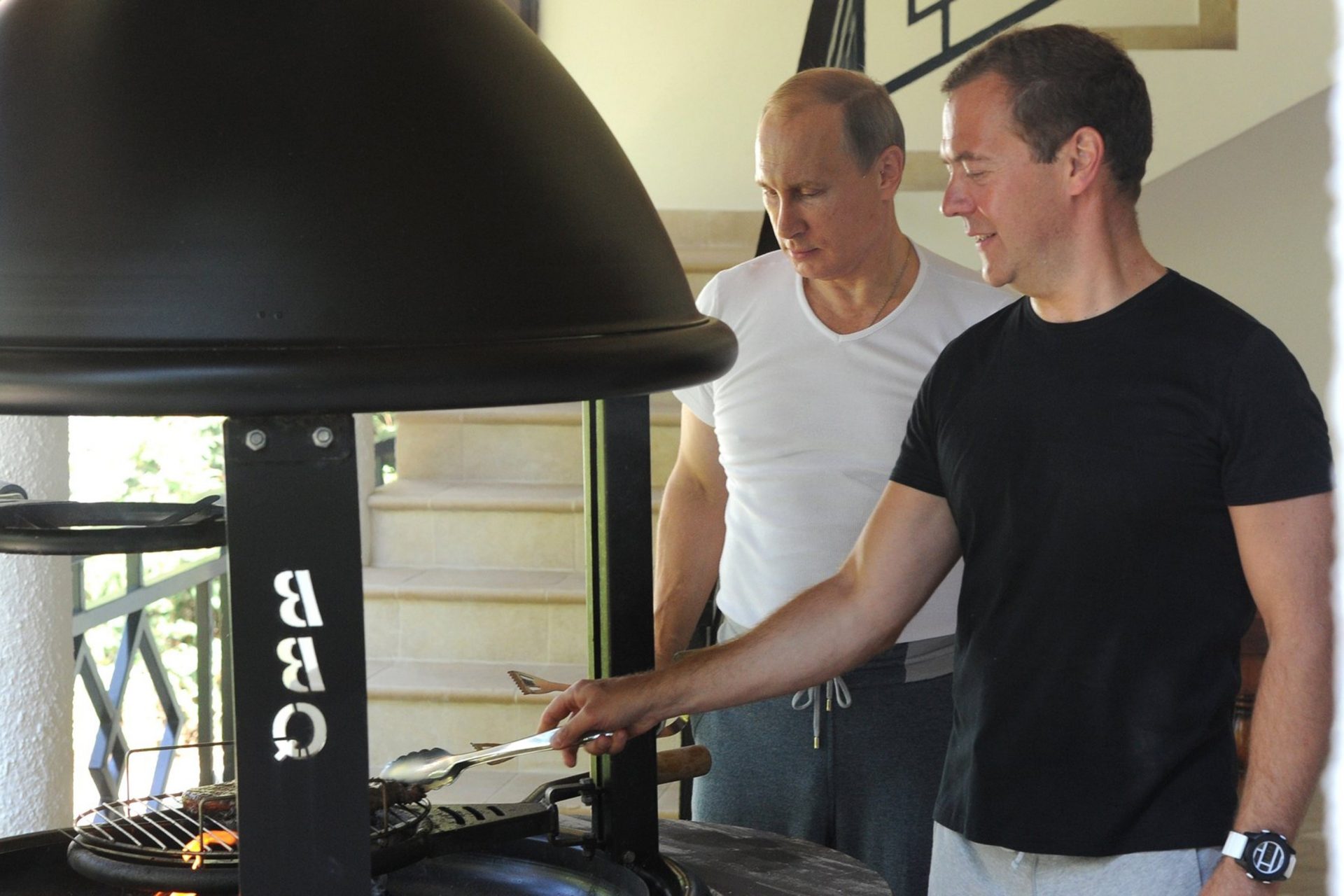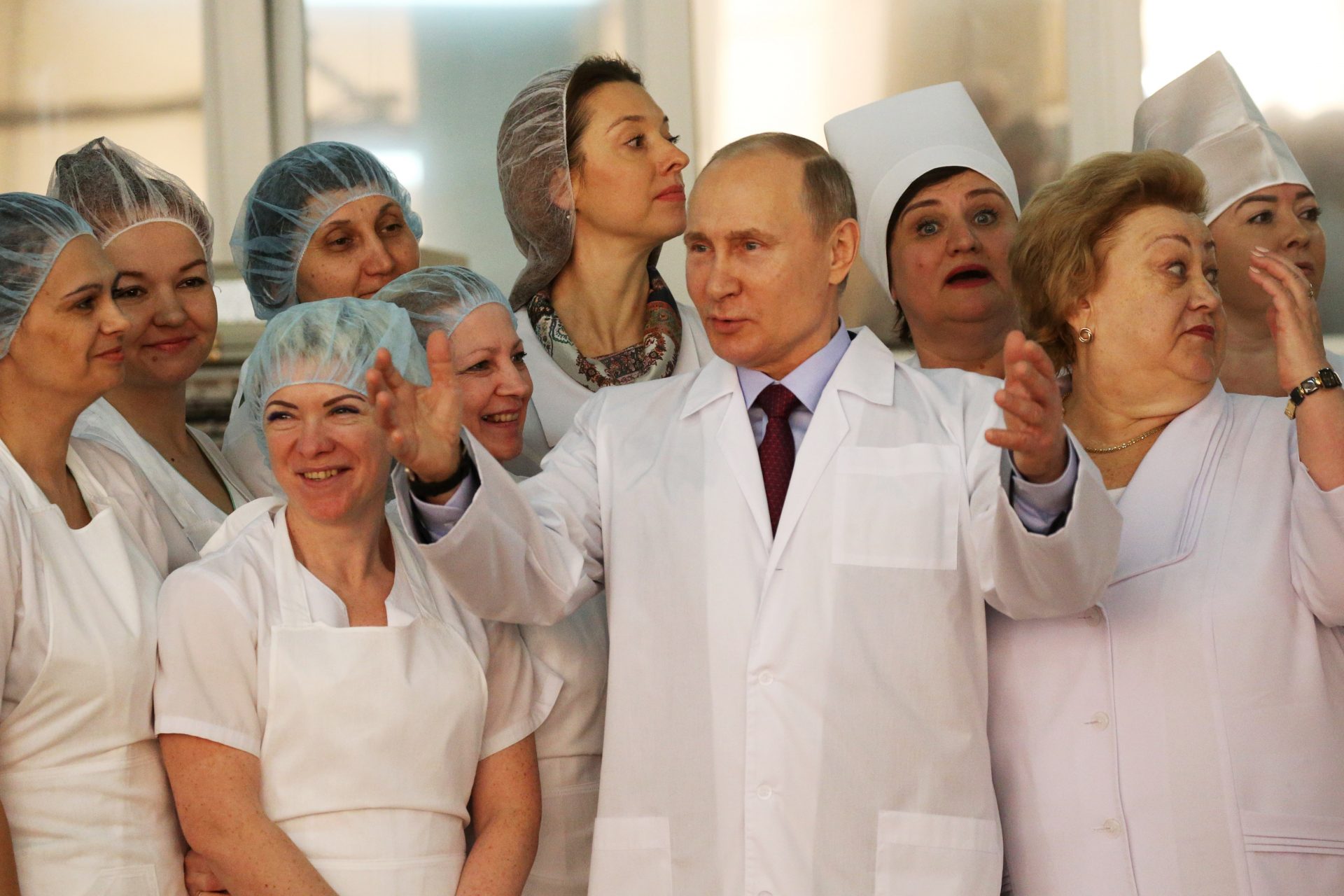Extreme security measures show just how paranoid Russia's president Vladimir Putin is
Russian President Vladimir Putin is widely regarded as a figure who exercises extreme caution, driven by concerns over his security. This heightened sense of vigilance likely stems from the adversities he faces, as numerous critics of Putin have met untimely and questionable deaths under mysterious circumstances. Consequently, Putin has implemented rigorous personal security protocols to safeguard himself against perceived threats.
According to a source close to the Russian President Vladimir Putin's inner circle, he prefers to travel within his country by armored train rather than by airplane.
The Dossier Center, an investigative journalism project led by Mikhail Khodorkovsky, uncovered that Putin has been using an armored train for travel within Russia since mid-August 2021, as part of its efforts to track criminal activity within the Kremlin.
Like many other authoritarian presidents, Putin has always believed that he is at risk and under threat. However, in Putin's case, the measures he takes to protect himself from possible threats are quite extreme.
Some of Putin's security measures border on the surreal, while others involve hundreds of people closely monitoring every move made by Russia's undisputed leader. Let's explore some of Putin's most extreme security measures.
According to the BBC, Putin utilizes the Russian Presidential Security Service as his personal surveillance network.
The Presidential Security Service is part of the Russian Federal Protective Service (FSO), which has roots in the former KGB, and is also tasked with safeguarding other high-ranking Kremlin officials.
Putin also established the Rosgvardia, or Russian National Guard, in 2016, which is considered as the president's personal army in a way.
General Viktor Zolotov, Putin's former bodyguard, serves as the director of Rosgvardia, which oversees approximately 400,000 troops under his direct command.
In addition to safeguarding the president, this substantial number of soldiers is also tasked with arms control, counterterrorism efforts, combating organized crime, maintaining public order, and protecting vital state facilities.
According to the website Russia Beyond, the security service protecting Putin is structured into four circles. The first circle consists of hundreds of bodyguards who are closest to the Russian president and accompany him 24 hours a day, 7 days a week.
The second circle comprises plainclothes agents who blend in with the public and citizens wherever they accompany Putin.
The third circle is tasked with surrounding the public and preventing any suspicious individuals from breaching the security zone.
The fourth and final circle consists of snipers positioned on the roofs of nearby buildings, surrounding the immediate vicinity close to Vladimir Putin.
As security expert Mark Galeotti pointed out to the BBC, an additional security complication is that Vladimir Putin does not like to fly and insists on taking a massive caravan of motorcycles, black armored cars, and trucks with him when he travels.
For these trips, says Mark Galeotti, the airspace is blocked, traffic is stopped, and extreme caution is exercised.
The matter takes on medieval overtones when we talk about the food that the Russian president eats.
According to Mark Galeotti, Putin has a personal food taster who tests everything the Russian leader is going to eat, to prevent it from being poisoned.
In addition, before serving any food to the Russian president, his bodyguards must first verify that there are no suspicious elements in the preparation, according to what Stephan Hall, an expert on Russia, told the BBC.
Preventive measures do not stop there, because when he makes a trip, the Russian president brings his own food and drink. Even if there is a toast, Vladimir Putin pours himself a drink from his own bottle.
Communications are limited in the close environment of Vladimir Putin and smartphones are prohibited in the Kremlin.
In an interview with the Russian news agency TASS, Vladimir Putin admitted this: only an official, internal line can be used to contact someone inside the Kremlin.
According to The Guardian, Putin distrusts the internet because he considers it "a CIA project".
In fact, Vladimir Putin has called on Russians on several occasions to not use Google for their searches, considering that it is a tool of the United States to monitor the interests of the Russian population. Reason here (perhaps) is not lacking but monitoring is, rather, used for the commercial interests of the company that owns Google.
Instead of the network of networks, Vladimir Putin uses the traditional method: paper. “He starts his day with three security briefings. One is what’s going on in the world, one is what’s going on in Russia, and the third is what’s going on inside the elite. For him, this is the most important information and the one that will define his day," Mark Galeotti points out in his statements to the BBC.
Personally, the situation of the Russian president is one of almost monastic isolation. If the pandemic had limited access to the president to a few people, the attack on Ukraine has made even more difficult to meet with Putin.
Indeed, Vladimir Putin's health is treated as a matter of national security. Anyone who wants to see him must undergo quarantine, a medical exam and several PCRs. Tell that to Emmanuele Macron, President of France, who refused to follow these guidelines and angered the Russian leader.
The famous photo of Macron at a table of unusual length was due to the Frenchman's refusal to take tests before speaking with Putin. However, the use of very long tables to maintain an exaggerated safety distance became common since the pandemic broke out.
Even in a meeting with such close associates as Defense Minister Sergei Shoigu, Putin kept his distance. Some media have suggested that Covid 19 isolated Putin and placed him on the verge of paranoia.
The Putin who currently shields his existence against external threats seems very different from the one who, in other times, portrayed himself as a seasoned adventurer, riding, hunting or fishing in Siberia. Things certainly have changed.
Never miss a story! Click here to follow The Daily Digest.
More for you
Top Stories



